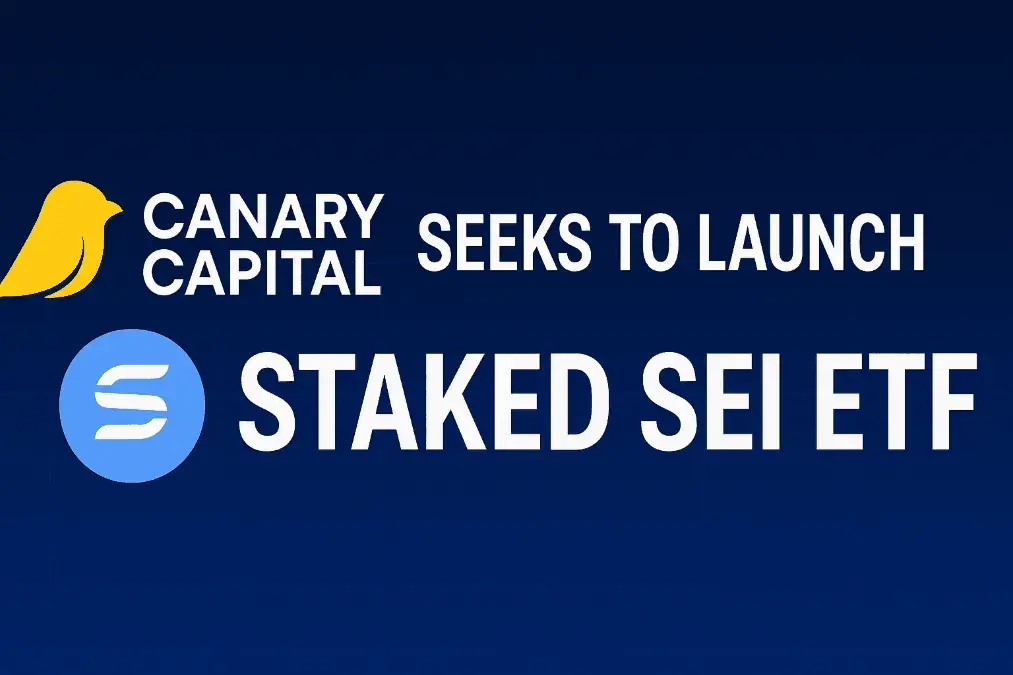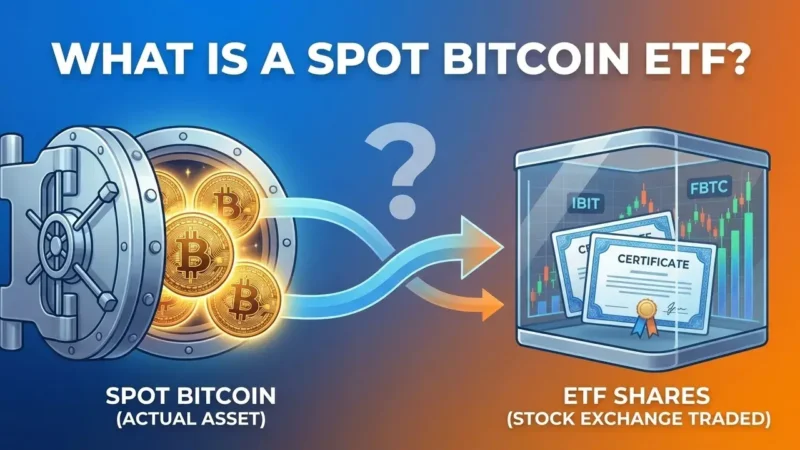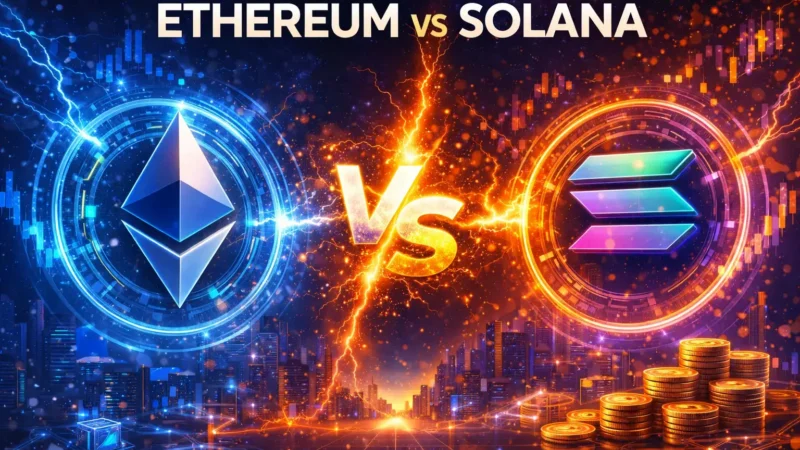Canary Capital Aims to Launch Groundbreaking Staked SEI ETF

Canary Capital is once again making waves in the cryptocurrency investment landscape with its latest filing in Delaware: an application to launch a pioneering Staked SEI ETF. This strategic move not only underscores the firm’s growing commitment to the digital asset space but also highlights the increasing appetite within traditional finance for innovative products that bridge the gap between conventional investment vehicles and the burgeoning world of crypto. By seeking to combine the potential price appreciation of the SEI token with the yield generated from its staking mechanism, Canary Capital is proposing a unique investment opportunity for those looking for both market exposure and passive income within a familiar ETF structure.
Expanding Crypto Portfolio Signals Broad Ambitions
This application for a Staked SEI ETF follows Canary Capital’s recent expansion of its crypto-related portfolio, which includes filings associated with TRON (TRX), Sui (SUI), and even the popular Pudgy Penguins non-fungible token (NFT) collection. This diverse range of interests signals a broad and forward-thinking approach to the digital asset market, suggesting that Canary Capital is keen on exploring various avenues for bringing crypto exposure to a wider investor base.
Understanding the Innovative Concept: Combining Price and Staking Returns
The concept behind the Staked SEI ETF is particularly noteworthy. Staking, a process common in proof-of-stake blockchains like SEI, involves locking up a certain amount of tokens to support the network’s operations and, in return, earning rewards. By integrating this staking mechanism into an ETF structure, Canary Capital aims to offer investors a product that not only tracks the price movements of the SEI token but also generates additional returns through staking. This could potentially lead to a more attractive overall return profile compared to simply holding the underlying asset directly, especially for investors who may not have the technical expertise or desire to manage the staking process themselves.
Strategic Filing in Delaware: Navigating the Regulatory Landscape
The filing of this application in Delaware, a state known for its favorable business and financial regulations, is a significant step in Canary Capital’s endeavor. The regulatory landscape for cryptocurrency-based investment products is still evolving, and choosing a jurisdiction with a well-established legal framework is crucial for navigating the approval process.
Traditional Finance Embraces Novel Crypto Investment Vehicles
The move by Canary Capital also reflects a broader trend of traditional financial institutions showing increasing interest in the cryptocurrency market. While concerns about volatility and regulatory uncertainty have historically kept many mainstream investors on the sidelines, the growing maturity of the crypto space and the demand for exposure to this asset class are driving innovation in product development. The Staked SEI ETF represents a novel approach to offering this exposure within a familiar and regulated framework, potentially opening the door for a new wave of institutional and retail investors to participate in the SEI ecosystem.
Spotlight on the SEI Network: A Layer-1 Optimized for DEXs
The SEI network itself is a relatively new layer-1 blockchain focused on optimizing for decentralized exchanges (DEXs). Its architecture is designed to provide high transaction speeds and low latency, aiming to create a superior trading experience for decentralized finance (DeFi) users. The native token of the SEI network plays a crucial role in the ecosystem, being used for transaction fees, governance, and, importantly in this context, staking.
Potential Benefits for Investors and the SEI Ecosystem
The potential benefits of a Staked SEI ETF are manifold. For investors, it offers a convenient and potentially less complex way to gain exposure to both the price performance of SEI and the rewards generated from staking. They would not need to worry about the technical complexities of setting up and managing a staking wallet, choosing validators, or understanding the nuances of staking periods and potential risks. The ETF structure also provides the liquidity and tradability that comes with traditional exchange-traded products.
For the SEI network, the launch of a Staked SEI ETF could lead to increased visibility and demand for the SEI token. As more investors gain access to SEI through this ETF, it could potentially drive up the token’s price and increase the overall market capitalization of the network. Furthermore, the staking activity associated with the ETF could contribute to the security and stability of the SEI blockchain.
Navigating Potential Challenges and Risks
However, it is important to acknowledge the potential challenges and risks associated with such a product. The price of the SEI token, like all cryptocurrencies, can be highly volatile, and investors in the Staked SEI ETF would be subject to these market fluctuations. Additionally, the returns from staking are not guaranteed and can vary depending on network conditions and validator performance. The ETF’s performance will be influenced by both the price of SEI and the yield generated from staking, creating a dual source of potential volatility.
Furthermore, the regulatory approval process for cryptocurrency-based ETFs in the United States can be lengthy and uncertain. While the approval of Bitcoin spot ETFs earlier this year marked a significant milestone, each new type of crypto ETF, especially one involving staking, will likely face careful scrutiny from regulatory authorities. Canary Capital will need to demonstrate that the Staked SEI ETF provides adequate investor protection and complies with all applicable regulations.
A Diversified Crypto Strategy: Beyond the Staked SEI ETF
The inclusion of filings related to TRX, SUI, and Pudgy Penguins alongside the Staked SEI ETF application suggests that Canary Capital is exploring a diverse range of crypto-related investment themes. TRON is a well-established blockchain platform with a focus on decentralized entertainment and content sharing. Sui is a newer layer-1 blockchain known for its high throughput and scalability. The filing related to Pudgy Penguins, a popular NFT collection, indicates Canary Capital’s interest in the burgeoning digital collectibles market. This broad approach suggests a belief in the long-term growth and diversification of the digital asset ecosystem.
The Broader Implications for Traditional Finance and Crypto Integration
The fact that a traditional financial firm like Canary Capital is venturing into such innovative crypto products speaks volumes about the evolving landscape of finance. It signals a growing recognition that digital assets are not just a fringe phenomenon but are becoming an increasingly important part of the global financial system. The development of products like the Staked SEI ETF could play a crucial role in bridging the gap between traditional finance and the crypto world, making digital assets more accessible to a wider range of investors.
Factors Influencing the Success of the Staked SEI ETF
The success of the Staked SEI ETF will likely depend on several factors, including the price performance of the SEI token, the stability and attractiveness of the staking rewards, and the overall market sentiment towards cryptocurrencies. Regulatory approval will also be a critical hurdle to overcome. However, the very filing of this application represents a significant step forward in the evolution of crypto-based investment products.
Potential for a New Wave of Staked Crypto ETFs
Canary Capital’s initiative with the Staked SEI ETF could pave the way for other financial institutions to explore similar products, potentially leading to a greater variety of staked cryptocurrency ETFs becoming available to investors. This could further legitimize the crypto market and attract more institutional capital.
Stay informed, read the latest crypto news in real time!
Conclusion: A Pioneering Move in Crypto Investment
In conclusion, Canary Capital’s application for a Staked SEI ETF is a noteworthy development in the cryptocurrency investment space. It represents an innovative attempt to combine market exposure with staking rewards within a traditional ETF structure. While challenges and uncertainties remain, this move underscores the growing integration of digital assets into mainstream finance and the increasing demand for sophisticated investment products that cater to this evolving market. The outcome of this filing will be closely watched by both the crypto community and the traditional financial world, as it could set a precedent for future staked cryptocurrency ETFs.




